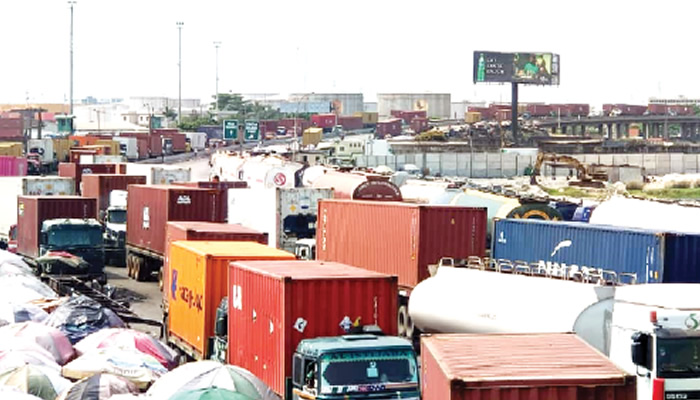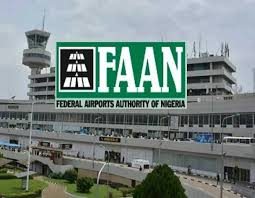Haulage operators lament NPA’s safety standard process

By Temitope Adebayo
Haulage operators have lamented flaws in the Nigerian Ports Authority (NPA) Minimum Safety Standard (MSS) scheme process for trucks.
They expressed worry that the process has been compromised as trucks without requisite qualifications are often found with the safety sticker and access the port freely, as well as the road.
This is coming after about nine passengers were reportedly crushed to death by a 20ft laden container that fell on a commercial bus in the Ojuelegba area of Lagos State on Sunday.
The Lagos State Governor, Babajide Sanwo-Olu, while commiserating with the families of the deceased, ordered the Ministry of Transportation and the Nigeria Ports Authority to meet urgently to find a lasting solution to the menace of falling trucks.
According to a statement from the Commissioner for Information and Strategy, Gbenga Omotoso, the governor directed that all laws governing the operations of trucks and related vehicles must be enforced with more vigour and diligence.
NPA had in July 2021 commenced the minimum safety standard scheme sequel to a Memorandum of Understanding (MoU) signed with the Federal Road Safety Corps (FRSC), to stem the increasing cases of trucks breaking down and containers falling off articulated vehicles inside the port and on the highways, which had claimed hundreds of lives and destroyed of properties.
The scheme was initially introduced in 2017 but was suspended to give truck owners enough time to meet the required standards.
The scheme stipulates that all trucks doing business inside the port must go through a safety audit and be certified as fit-for-purpose, as the absence or defect of certain vehicle parts and accessories will disqualify a truck from certification.
The safety inspection covers items that include the truck head, driver and vehicle particulars, trailer carriage unit, tyres, windscreen, wiper, safety belts, brake system, lifting jack, vehicle lights, driving mirror and speed limiter, tonnage, exhaust, radiator, ignition, fire extinguishers, horn, trafficators, twist locks and turntable, which must be in good working condition.
The items checked will be recorded as satisfactory or unsatisfactory after the inspection.
NPA added that trucks doing business at the port must meet stipulated standards of roadworthiness to enhance the productivity of the ports and check unnecessary carnage on the roads.
Commiserating with the family of the deceased, maritime haulage operators under the aegis of the Council of Maritime Truck Unions and Associations (COMTUA), expressed disappointment at the process, despite the involvement of the vehicle inspection unit of the Lagos State Ministry of transportation to ensure credibility.
The National President of COMTUA, Adeyinka Aroyewun, said the process of truck inspection is not observed as promised before the commencement of the project, thereby giving room to racketeering.
He said vehicle registration numbers vehicles and vehicles without registration numbers are often registered for the safety stickers to use for call up.
He, however, stated that the regime is losing its credit due to the contradiction in the standard of vehicles found in and around the ports and on the roads.
Recall that the National Coordinator the of Presidential Standing Task Team (PSTT), Moses Fadipe, had last year lamented that about 90 per cent of trucks, which are arrested for violating ease of doing business on the port corridors, are not roadworthy and do not meet the standards of entering the ports.
Fadipe said at the point of arrest, the PSTT discovered that most of the trucks have expired documents of about 10 to 15 years and licences from the drivers, but neither do they have documents.
READ ALSO: NDPB, Meta partner to train 100 data privacy
“Majority of the trucks we have apprehended so far do not have papers. Even when they have papers, they have expired for over 10 to 15 years. We start to wonder why they are on the road,” he said.
Meanwhile, Professor of Transport and Logistics, Lagos State University (LASU), Odewumi Samuel, expressed sadness that the implementation of policies is very weak, adding that corruption has manipulated the process of safety standards requirements and enforcement.
“The safety standard requirements are there, in terms of the age of the truck, latching of the container, the size of the load and all other specifications. But who will enforce the law when the enforcer and the people are corrupt?
“We have to work on our character as citizens to discern what is bad. We need enlightenment and education for the people. Everybody needs to be aware of the safety standards and law enforcement could sometimes be dangerous even for the enforcer,” he said.
He called on all stakeholders in the transport sector, including the media, to work together to empower people so that their average thinking will be safety and security.










